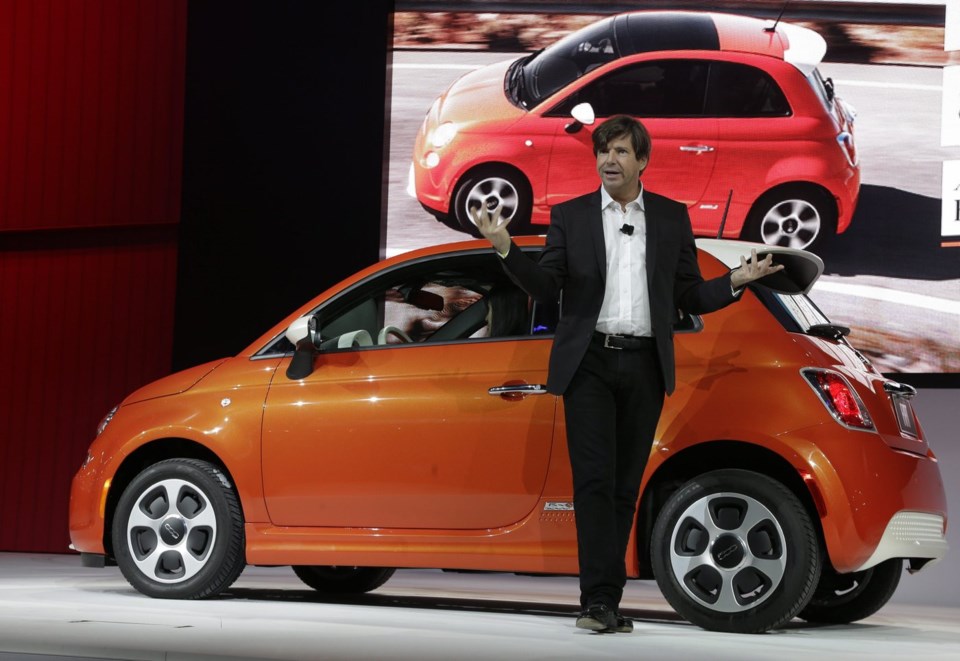TORONTO — The federal government has stopped the world’s cheapest electric vehicles — made in China — from coming into Canada with a 100 per cent tariff, so advocates are pushing to make it easier for automakers to bring in cheaper ones from Europe.
“Right now, there is a blockage, saying that for safety reasons they cannot let these cars in,” said Daniel Breton, head of Electric Mobility Canada.
He’s pushing to have the federal government rule that EVs deemed safe by European regulators don’t need to be re-certified and modified for Canadian standards. The potentially costly process can be a barrier to bringing more compact and affordable EVs to the Canadian market, though demand might be the bigger hurdle.
“Right now Transport Canada is saying, well, we have to change the bumpers and we have to change the headlights and this and that for safety reasons, which, as far as I'm concerned is total B.S.,” said Breton.
“If the car is good enough to be driving on European roads, where you can drive much faster than here, don't come and tell me that they're not safe enough to be driven in Canada.”
Attempts to lower the barriers to cheaper vehicles comes as EV sales have been disrupted by the abrupt end of government rebate programs, while tariffs and U.S. moves to end EV supports and mandates are further destabilizing the market.
Breton said that allowing a more open flow of vehicles from Europe would fit in well with a push to strengthen and diversify trade ties with the region, as Prime Minister Mark Carney has said he hopes to do, but Transport Canada says it's not so simple.
"The certification requirements of other jurisdictions may not be sufficient to meet the safety needs of Canadian road users due to Canada’s distinct driving environment," said spokesman Hicham Ayoun in an email.
He said Canadian test standards are better suited for the road infrastructure, speed limits and larger vehicle sizes found on Canadian roadways.
"Some European crash testing requirements are not as stringent as the Canadian regime due to differences in their driving environment."
While Breton said the idea that European testing is deficient is ridiculous, there is also the question of how much demand there would be for the vehicles.
As Transport Canada pointed out, Canadians like big cars and trucks. So much so that a few years ago the International Energy Agency found Canadian vehicles were the largest and second heaviest in the world, resulting in the worst fuel efficiency rating globally.
Automakers know that and could be hesitant to bring in smaller cars, said Sam Fiorani, vice-president of global vehicle forecasting at AutoForecast Solutions.
"European EVs are tailored for the European market, and those models don't convert very well to the U.S. and Canada," he said.
“The small cars that Canadians appreciate are on the fringes — there aren't too many of them."
But even if the potential market isn't much bigger than the cars themselves, Breton said there's still demand from anyone ranging from downtown drivers to households looking to make their second car an EV.
He pointed to the Smart EV his wife drives, which is no longer available in Canada.
"If today her vehicle was scrapped, she couldn't find anything on the market, except for the Fiat 500e. But that's it. That's not choice."
The Fiat is the cheapest EV available in Canada, with a base price of $42,290 (though the company is currently offering more than $4,000 in discounts) for an advertised 227-kilometre range. The Nissan Leaf is the nearest competitor, starting at a selling price of $44,596 for a 240-kilometre range.
But there are numerous other compact models that aren't available here.
Volkswagen sells its ID.4 in Canada, but not the ID.3 that can retail for some 20 per cent less, and Nissan doesn't sell its more affordable Micra model, while other European brands with compact EVs like Citroen, Opel and Peugeot don’t sell in Canada at all.
Sales numbers for the available compact options aren't high, with Stellantis selling 1,275 of its Fiat 500e model last year, compared with more than 62,000 under its Ram brand and more than 40,000 for Jeep.
But the market also needs choice to grow and fewer barriers to entry, said Breton.
There does seem to be support for at least the idea of bringing cheaper EVs from Europe, according to a poll released last month from Clean Energy Canada.
The results from 2,585 Canadians showed 70 per cent were in favour of allowing European-approved EVs into Canada, with only 10 per cent against and the rest unsure.
The poll also showed a majority supported the other big lever the federal government has to making EVs cheaper, by reducing or doing away with tariffs on Chinese electric vehicles.
The results showed 53 per cent supported mirroring Europe’s model that has put tariffs of up to 35 per cent on Chinese vehicles, an approach that balances protecting home industries with improving affordability.
Breton said he would also like to see a more nuanced approach to China than the 100 per cent tariff Canada has imposed, to better strike that balance and make it easier to transition to zero-emission vehicles.
"We want to make sure that Canadians have access to affordable electric cars."
This report by The Canadian Press was first published July 18, 2025.
Ian Bickis, The Canadian Press



